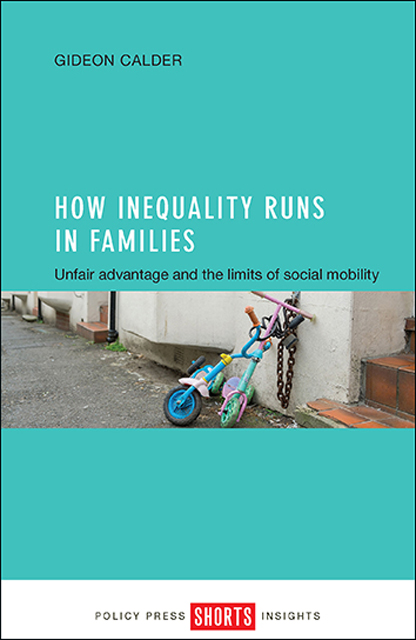Book contents
two - The family and social justice
Published online by Cambridge University Press: 21 April 2023
Summary
[T]he family, while neglected, is assumed by theorists of justice. (Okin, 1989, p 9, emphasis in original)
So wrote Susan Moller Okin in a widely influential critique of mainstream academic theorising of the fair society. Those debates were famously reframed and re-ignited with the publication of John Rawls’s A theory of justice in 1971 (Rawls, 1999, revised edition). Rawls’s framework for liberal egalitarianism became compulsory reading for anyone wanting to grapple with the deep questions of what social justice might look like. What kinds of rights should individuals have? What is the relationship between freedom and equality? Under what circumstances are we obliged to obey the law? What kinds of economic structure are compatible with social justice? What do citizens owe the state, and what does it owe them? Rawls’s answers to these questions set a kind of unavoidable benchmark: an account of the ‘basic structure’ of a just society. It wasn’t that you had to agree with his own, broadly social-democratic take on these issues, or his underpinning assumptions, or his method. It was just that you had to take his approach on board. From then on, few could get away for long, discussing theories of social justice, without sometime, somehow, invoking Rawls.
Yet Rawls’s extended, rigorous account of the ‘basic structure’ says very little about the family. This seems anomalous. The basic structure refers to ‘the way in which the major social institutions distribute fundamental rights and duties and determine the division of advantages from social cooperation’. These major institutions ‘define men’s [sic] rights and duties and influence their life prospects, what they can expect to be and how well they can hope to do’ (Rawls, 1999, pp 6-7). Rawls gives as an example of a major social institution ‘the monogamous family’. So the family is clearly, on his terms, something to which principles of justice should apply. This is a big point to make. By no means everyone with an axe to grind on questions of the family and social justice is happy with such talk. It’s just that he doesn’t, then, go on to tell us how justice applies to family relations, or what a socially just family might look like. ‘[G]iven that family institutions are just …’, he writes (Rawls, 1999, p 429), at the beginning of a discussion of the course of moral learning from childhood on.
- Type
- Chapter
- Information
- How Inequality Runs in FamiliesUnfair Advantage and the Limits of Social Mobility, pp. 9 - 38Publisher: Bristol University PressPrint publication year: 2016



